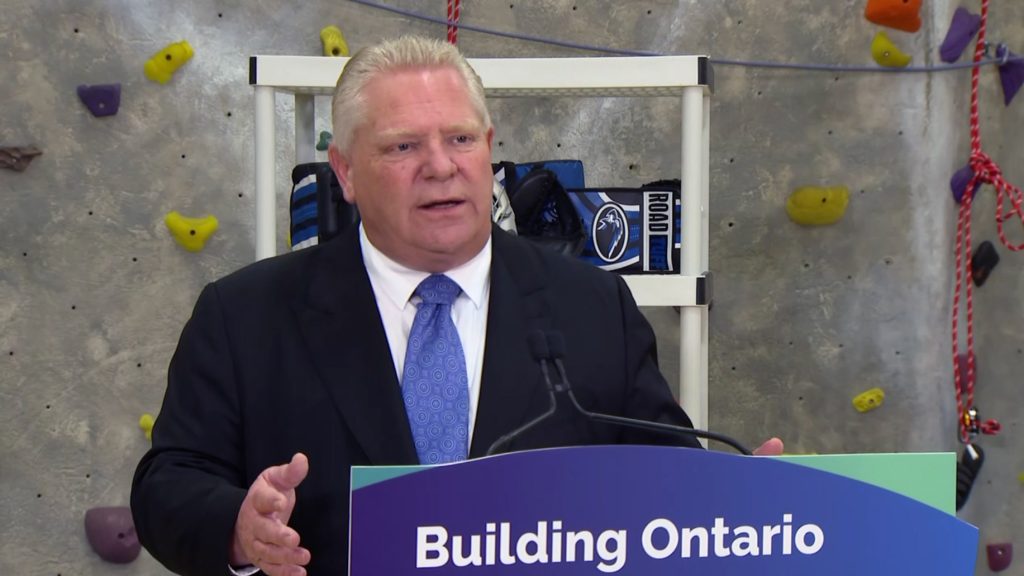UN chief Ban believes diplomatic talks on Gaza will end Israel-Hamas fighting soon
Posted July 22, 2014 11:25 am.
This article is more than 5 years old.
The U.N. secretary-general said Tuesday it is his “hope and belief” that his emergency mission to the Middle East will lead to an end to the fighting between Hamas and Israel “in the very near future.”
Ban Ki-moon told the Security Council by videoconference from the West Bank city of Ramallah that he could not publicly reveal details “at this highly sensitive moment.” As he started to address the council a siren could be heard in the background.
The U.N. chief has also visited Qatar, Kuwait, Cairo and Jerusalem and said he will go on to Jordan and Saudi Arabia on what he called a mission “of solidarity and peace” to quickly end an escalating two-week war between Israelis and Hamas militants who control the Gaza Strip. Their third conflict in just over five years has already claimed the lives of at least 609 Palestinians, the vast majority civilians, and 29 Israelis — 27 soldiers and two civilians.
In the last three days Ban has met with the head of the Arab League and Arab, Palestinian and Israeli leaders as well as U.S. Secretary of State John Kerry and Norway’s foreign minister. He also spoke to French President Francois Hollande.
“Suffice it to say, it is my hope and belief that these talks will lead to results and an end to the fighting in the very near future,” Ban said.
He cautioned, however, that “of course there are many obstacles and complexities.”
Ban said “the most promising prospect of a cease-fire” is an Egyptian initiative to return to the cessation of fighting in November 2012 that has been endorsed by Palestinian President Mahmoud Abbas and the Arab League — but not Hamas.
Riyad Mansour, the Palestinian U.N. ambassador, told several reporters after more than 60 countries addressed the council that he hopes the secretary-general succeeds in ending the violence.
He said the Palestinian leadership was meeting late Tuesday to evaluate Abbas’ meetings with Ban and other leaders.
Mansour said he believes the Palestinians, who recently formed a unity government between Hamas and Abbas’ Fatah movement, “are very close” to a unified position. That will enable Abbas to speak for all Palestinians, he said.
“From our side, I think that we will be very close to having our effort (succeed) in bringing this aggression to an end,” Mansour said.
Ban stressed that a cease-fire without addressing the root causes of the Israeli-Palestinian conflict will only delay the problem for yet another time.
“The cycle will continue — except the bitterness and hatred will become that much more entrenched each time it comes around,” Ban said. “Quite simply, if a people are left with despair and occupation, the problem won’t disappear, it will only grow.”
Mansour echoed that there must be no return to the “status quo” and said the blockade of Gaza must be lifted.
U.S. Ambassador Samantha Power told the council that “an immediate cease-fire could not be more urgent or more important” and stressed that the United States “will not rest” until the fighting ends and the underlying issues are resolved leading to a two-state solution.
Egypt’s U.N. Ambassador Mootaz Khalil urged acceptance of the Egyptian initiative and condemned Israel’s disproportionate use of force, saying: “The Torah mandates an eye for an eye. It never dreamed a hundred eyes for only one.”
“We hope our common efforts will result in an immediate cease-fire followed by negotiations to address the root causes of this ever-repeating, never-ending conflict, first and foremost ending the illegal blockade” of Gaza crossings controlled by Israel, he said.
Mansour demanded to know what the Security Council is doing “to stop this bloodletting, to stop Israel’s atrocities” and uphold its responsibility to protect civilians.
He urged the council, which is often divided on the Israeli-Palestinian conflict, to adopt a resolution demanding an end to the fighting.
“Without decisive action, the council’s resolutions and statements ring hollow as defenceless civilians find no relief from the murderous Israeli war machine,” he said.
The proposed resolution, backed by the Palestinians and their Arab and international supporters, was circulated to the 15 council members later Tuesday by Jordan, the Palestinians said.
The draft, obtained by The Associated Press, calls for “an immediate, durable and fully respected cease-fire, including the withdrawal of Israeli occupying forces from the Gaza Strip.”
It urges support for the Egyptian cease-fire initiative and calls for “the sustained reopening” of crossing points into Gaza based on a 2005 agreement. It condemns violence against civilians and calls for “all necessary measures” to protect civilians including the “immediate cessation of military reprisals, collective punishment and excessive use of force against the Palestinian civilian population.”
The resolution faces an uphill struggle winning approval from the United States, Israel’s closest ally and a veto-wielding council member, especially because it makes no mention of Hamas or its rocketing of Israel.
Russia’s U.N. Ambassador Vitaly Churkin said a senior Foreign Ministry official is in the region and plans to hold talks with the Israelis, Palestinians and U.N. He said Russia is ready to consider an Arab-supported resolution.
Mansour read the names of 44 Palestinian children killed in the fighting, aged 8 months to 15 years old, and showed council members grim photos of victims and grieving survivors. The U.N. office of humanitarian affairs estimates that at least 75 per cent of the Palestinian deaths were civilians, including dozens of children.
Israel’s Deputy Ambassador David Roet warned that the struggle Israel is facing today from Hamas “is a preview of the struggle that the rest of the civilized world will likely face tomorrow” from the global spread of “radical Islamist terrorism.”
Roet attacked the formation of the unity government in early June.
“President Abbas has a choice to make,” Roet said. “He can continue to remain silent and stand in support of Hamas, or he can assume the mantle of leadership by dissolving the unity government. The choice is his — be part of the problem or part of the solution.”










